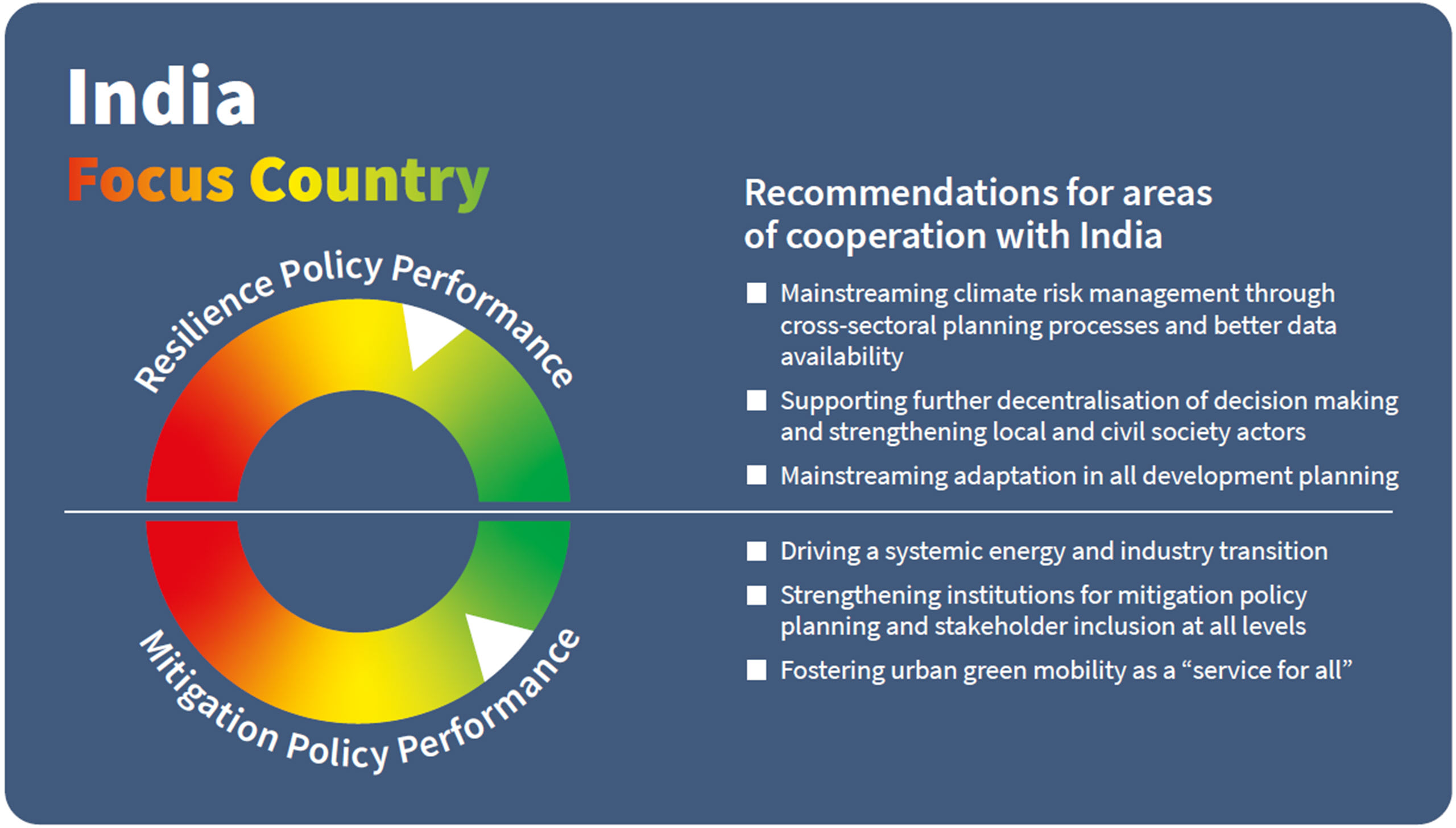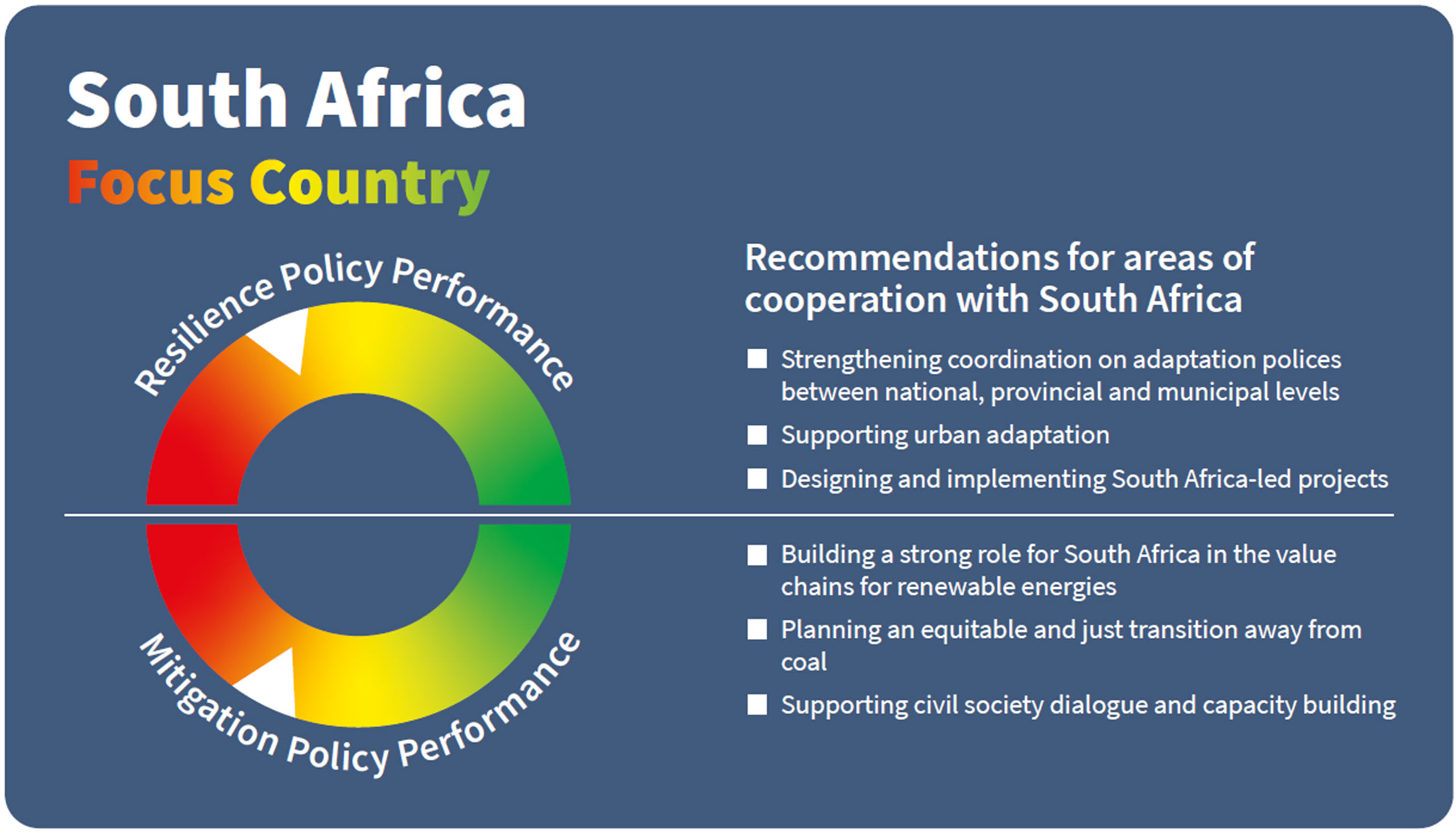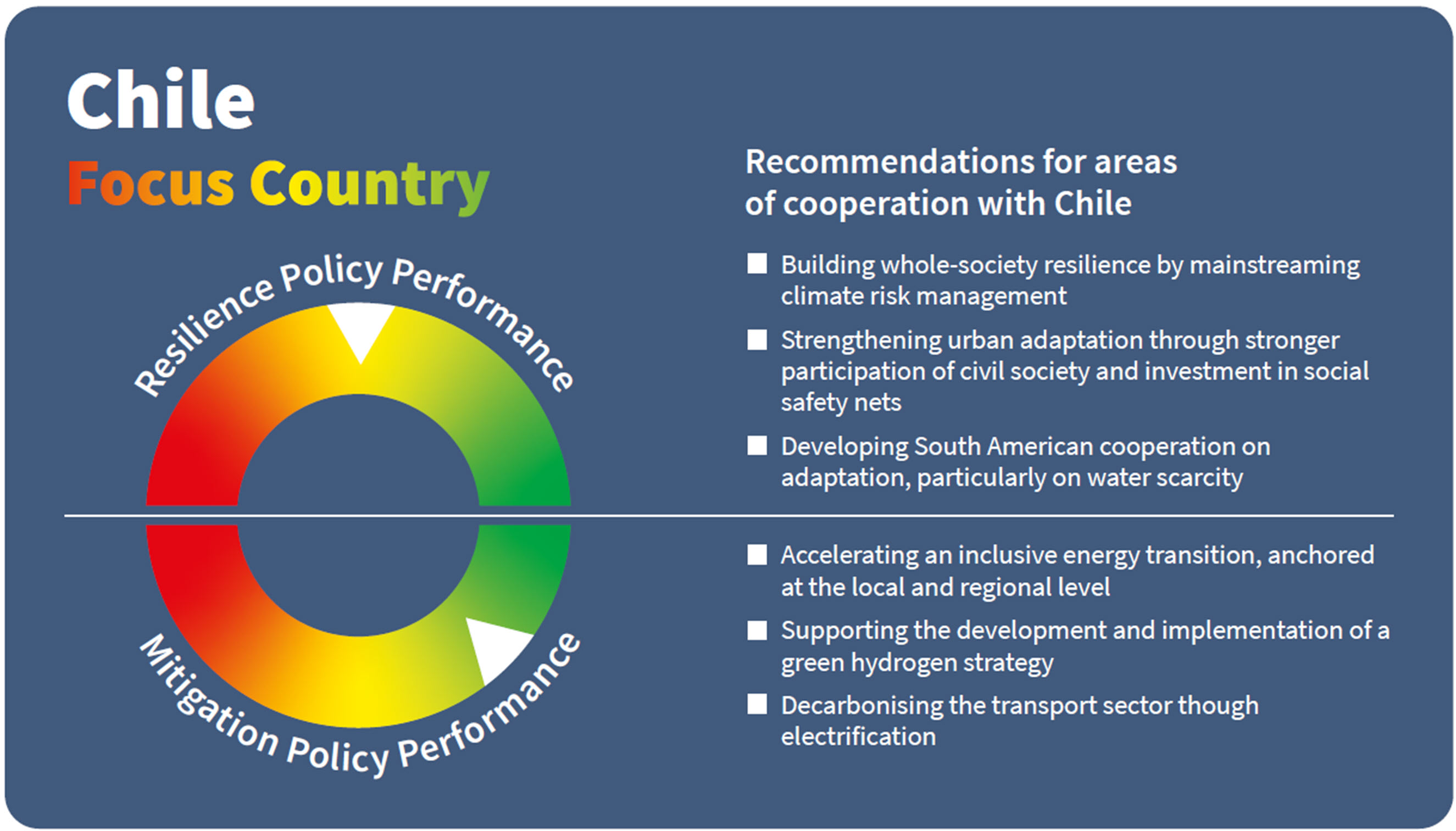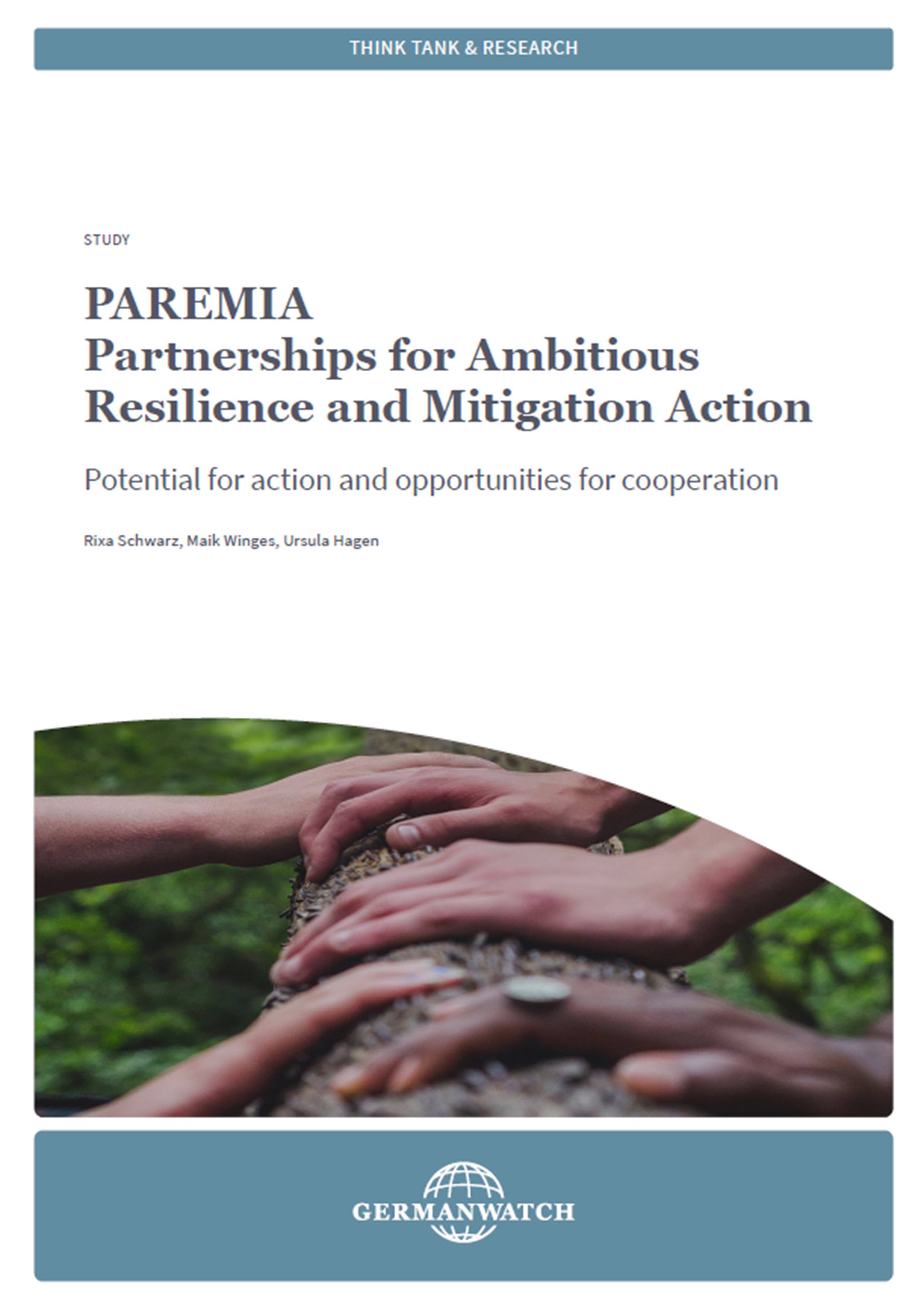
PAREMIA – Partnerships for ambitious resilience and mitigation action
Implementing climate protection more efficiently
properties.trackTitle
properties.trackSubtitle
0:00

Where individual countries reach their limits in implementing the SDGs and the Paris goals, Germany can support the necessary transformation to net-zero emissions and resilient societies through bilateral or multilateral partnerships. This can also boost Germany's own ambition.
Rixa Schwarz
Germanwatch
Team-lead, International Climate Policy
How can the goals be made more ambitious?



Who defines the partners?

Science and politics must work together here. We can make good use of studies like PAREMIA to readjust our own strategic considerations and to underpin political decision-making. But the studies have to be well done, precise and with a clear view on their practicability!
Dr. Philipp Behrens
Head of Division of the International Climate Initiative IKI of the BMU
Political cooperation is necessary
Download the full study
Global efforts to realise rapid emission reductions and build resilience must be ramped up without further delay to meet the 1.5 °C Paris target and enable vulnerable communities to deal with climate impacts. Where individual states reach their limits in implementing the SDGs and Paris objectives, bilateral or multilateral partnerships can provide support for the necessary transformation to net-zero-emission and resilient societies. Partnerships are indispensable to achieve whole-societal transformation, as they enable countries to share knowledge, experience and resources. Germany entertains solid climate cooperation with several countries in the Global South. In this study, we analyse preconditions for such partnerships with 13 countries and suggest thematic starting points for three of them – Chile, India and South Africa.
We thank Germanwatch for the trustful cooperation and congratulate the project team on the successful study publication. Together, we hope that it can contribute to making climate protection and resilience more ambitious worldwide.
Christian Barthelt, 26 May 2021



